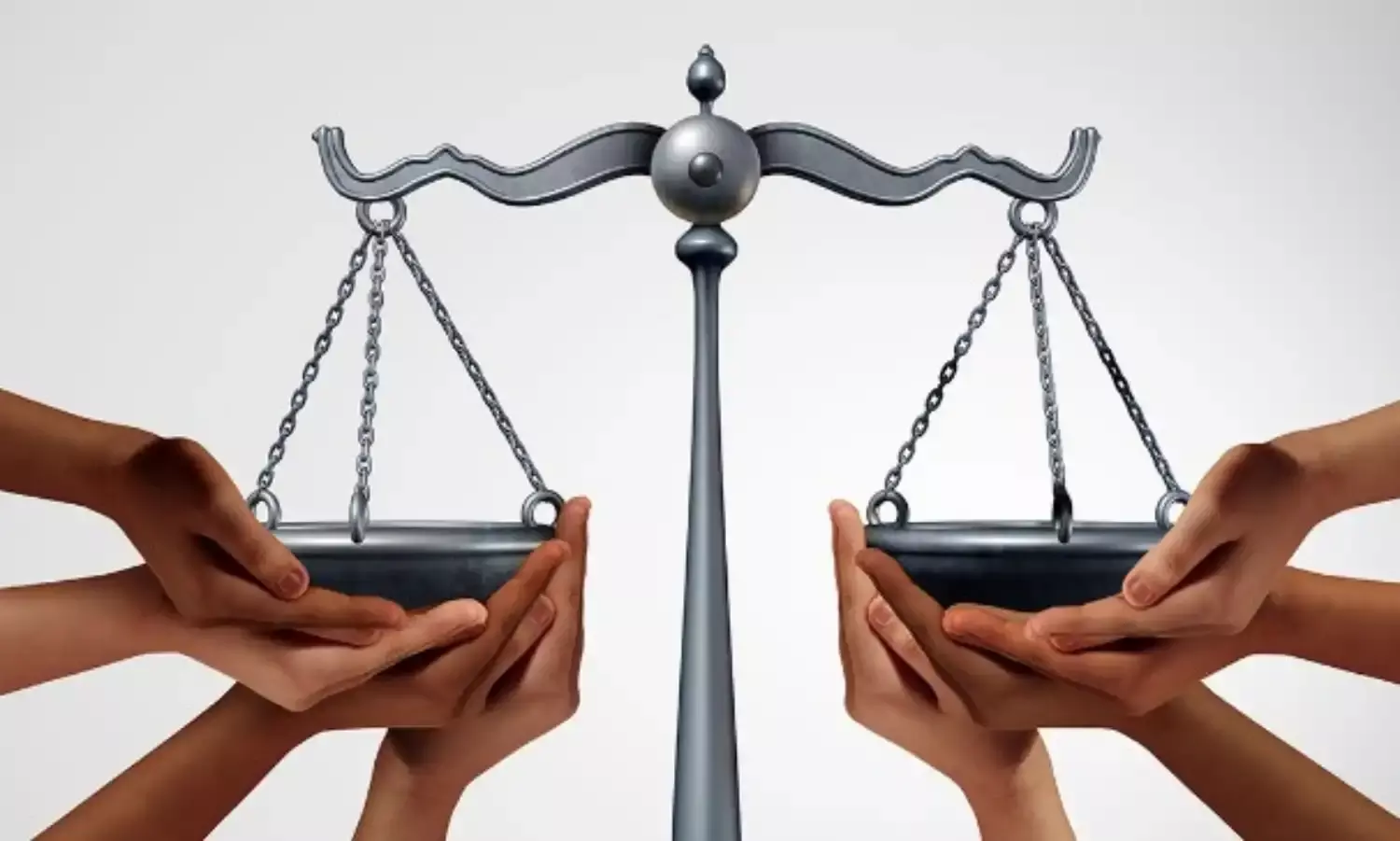The Uniform Civil ‘Complex’ Code
United doesn’t necessarily mean uniformity

Once upon a time there were all kinds of religion based personal laws. Then three magical letters were chosen from the alphabets to save the nation from going astray. They were ‘UCC’, the Uniform Civil Code.
This magical canon aiming to enforce an identical framework of a social system applicable to all its citizens was to codify a collection of laws. And then make it applicable, irrespective of gender, religion, tribe, caste or creed.
It was said that this common law would fix ALL familial problems of maintenance, marriage, divorce, death, succession and inheritance. It was a sensitive and tough task and the intellectuals argued that centuries old practices cannot be done away with one stroke. But it was somehow applied.
And guess what? Wonder of wonders, ever since there have been no gender injustice of any kind. No child marriages whatsoever. The custom of bigamy and polygamy was also totally abolished.
Even the graveyards in churches, the Shamshaans, the Kabristaans and the Towers of Silence all turned to junkyards; because the disposal of dead bodies was uniformly dealt with. Lo and behold, even all interfaith marriages were declared null and void.
It was the end of everything evil. And everybody lived happily ever after! Sounds like a fairy tale formula, right?
But life is not a fairy tale. Yes, perhaps the Uniform Civil Code is an intelligent, practical and a smart proposition. There is no doubt about it. In fact, it is perhaps the need of the hour to ensure that every citizen’s Fundamental and Constitutional rights are protected.
But, it will not be easy to apply it to a nation as unique and as diverse as ours. So what will actually happen is that apart from the resistance from all minority communities on what they might consider an interference in personal matters, the major problem will be different.
It will be in dealing with the primitive, geographically isolated, socially shy, educationally and economically backward classes. The tribal community, which constitutes about 8.9% of the total population, have traditions, cultures and a heritage that is rich, with unique lifestyles and customs of their own.
And if their cultural and ethnic identities are endangered and challenged, their traditions tampered with, and their lifestyles are encroached upon, the fairy tale ending might turn grim.
Before embarking on such a perilous journey, how about we first implement a simple law where the entire family of India is equally benefited? Where a few entitled ones are not protected and allowed to cover their gruesome tracks, even in the face of irrefutable evidence, and where there are no special treatments allotted with a ‘leadership immunity’ to engage in thrill seeking, risky behaviours.
Where power and position makes people impervious to getting away even with murder; where obsessive preoccupation with status stops people from seeing others as human beings; where no one has an inflated sense of self-importance, a need for admiration, and a shocking lack of empathy.
Where none are immune to the normal standards of decency, behaviour, ethics, and scientific scrutiny. And where people under the influence of power act as if they've suffered a traumatic brain injury, making them more impulsive, less risk-aware, and unable to see things from other people's perspectives.
So yes. If such a ‘Code’ that is civil and uniform to all the citizens of India is passed, I bet no Hindu Muslim, Sikh, Isaai, or all our Tribal brethren will not refute it. Fairy tales are good to grow up with as kids. In reality in an adult world, they are actually scary tales.
Most are metaphorical and we can never truly know the dark motives behind them. Moreover, even though we are made to believe that there will be a happy ending, usually most stories end up with the antagonists winning and the protagonists losing.
The truth is that Ravan always resides in man. He may hibernate at times, but he never dies. And if we are not alert to fight against vice, allowing it to continue or even proliferate, then evil usually triumphs.
United doesn’t necessarily mean uniformity. So what we need to remember is the unity in diversity, thus upholding the integrity of our democratic values.
It takes decades to pass such sensitive and complicated laws because we first need to understand the core issues involved in every faith and practice. Laws that have been practiced from time immemorial cannot be rushed through half- baked knowledge.
Moreover, there are too many grey areas, too much scope for confusion and a lot of misinterpretation that could foster further polarisation of the society. And even if the lawmakers may be well informed, unfortunately the masses aren’t privy to this level of nuances.
Instead of exhibiting an authoritarian stance and obsessing with the narrative, it is best to focus on understanding the various dimensions first. It is essential to promote awareness first. Then probably have informed discourses. Perhaps also appreciate the diverse perspectives that contribute to a harmonious and inclusive nation. And only then apply a new law.
The views expressed here are the writer’s own.


